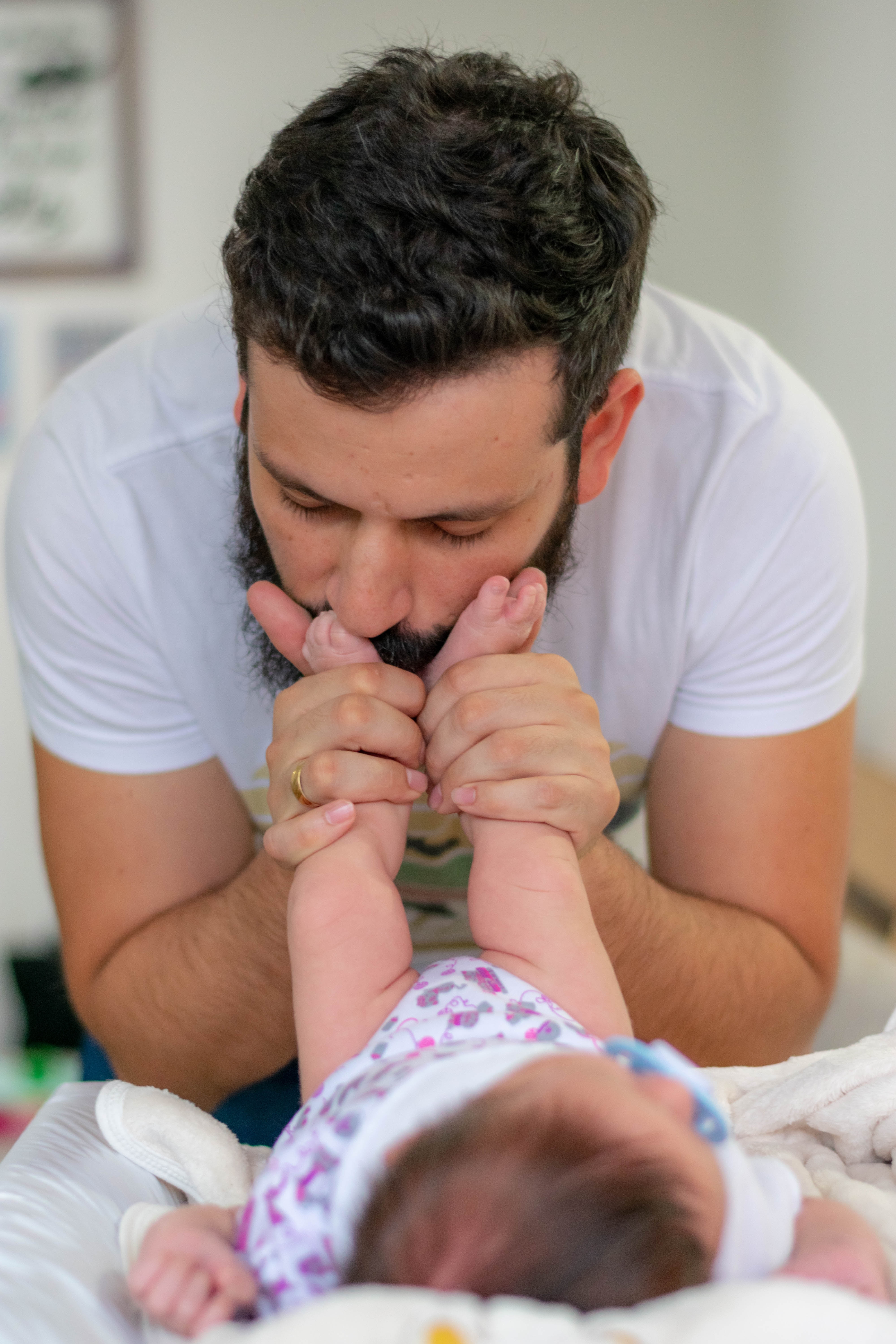Maternity leave, parental leave and time credit

What are the different types of leave linked to the birth of a child?

Maternity leave
What is it?
You’re entitled to 15 weeks' maternity leave (also known as pregnancy leave or birth leave). You’re entitled to 19 weeks in the case of a multiple birth. Single mothers who are independant can take 12 weeks, or 13 weeks in the case of a multiple birth.
Good news! Pregnant employees who become sick or unemployed during pregnancy are now entitled to a full period of maternity leave. Sick days are therefore no longer deducted from your maternity leave.
How much does the benefit payment amount to?
*Reference salary: gross salary on which your unemployment benefit is calculated.
|
|
Employees |
Unemployed |
Self-employed |
|
Day 1-30 |
82% of your gross salary (no maximum amount) |
Basic allowance + 19.5% of the reference salary. |
830.67 euros for full-time leave or 451.33 euros per week for half-time leave. |
|
From day 31 |
75% of the capped gross salary |
60% of the reference salary + 15% of the reference salary |
759.76 euros for full-time leave or 379.88 euros per week for half-time leave. |

Maternity leave
How do you apply for it?
- You provide your health insurance fund with a doctor's certificate specifying your expected delivery date and the date on which your maternity leave will commence. You’ll receive documents from your health insurance fund, which you need to complete and return as soon as possible.
- After your child is born, you supply your health insurance fund with a medical certificate or a copy of the birth certificate.
- As soon as you return to work, you provide your health insurance fund with proof of work resumption.
How can you use it?
- You’re entitled to 15 weeks' maternity leave in total. This is 12 weeks for single mothers.
- You may take up to 6 weeks of prenatal maternity leave. This is 3 weeks for single mothers.
- You can take at least 9 weeks postnatal maternity leave.
- You’re obliged to take at least 1 week of your 15 or 12 weeks’ maternity leave prior to childbirth. The remaining weeks can be taken as postnatal maternity leave.

Birth leave
What is it?
Fathers or co-parents can take 15 days of leave following the birth of their child.
- That leave must be taken within four months of the birth.
- You don't have to take these days consecutively.
How much does the payment amount to?
You’ll be paid your full salary for the first three days, and will receive 82% of your salary for the remaining days through your health insurance fund. If you’re self-employed, you will receive a benefit payment from your social insurance fund.
How do you apply for it?
- Notify your employer about the birth of your baby. If you’re self-employed, then notify your social insurance fund.
- Apply for your benefit payment from your health insurance fund (employees) or social insurance fund (self-employed persons).
Breastfeeding leave
Are you breastfeeding your baby? Then you can take breastfeeding leave. This can be done in two ways:
- If your work could be harmful to your health or that of your baby, then it’s best not to work if you are breastfeeding. Then you're entitled to ‘prophylactic breastfeeding leave'. This applies if you come into contact with certain bacteria, viruses or chemicals at work for example. In this instance you’ll receive a benefit payment from your health insurance fund.
- You can also take breastfeeding leave in consultation with your employer. Whilst this is usually unpaid, it is paid in certain sectors. So make sure to check with your employer if this applies for you.

You’re entitled to a half-hour breastfeeding break every four hours worked up until nine months following the birth of your baby. You can take 2 breaks in a 7.5-hour working day. These breaks are reimbursed by your health insurance fund. That way you can pause your work to express your milk or breastfeed your baby without feeling guilty.

Parental leave
Parental leave is a flexible form of career break that can be taken from the birth of your child up to their twelfth birthday. It comprises 4 months, which can be taken full-time or part-time (1/2, 1/5 or 1/10).
Who is it for?
- Mothers, fathers and co-parents are all entitled to parental leave.
- You’re entitled to 4 months for every child under the age of 12 or up to the age of 21 if your child has a mental or physical incapacity of at least 66%.
- You are also entitled to parental leave for adopted children.
- You must have been working for your current employer for a minimum of one year.
How do you apply for it?
Parental leave is an entitlement. This means that your employer cannot refuse it. Submit your application to the ONEM/RVA (National Employment Office).
Tip! Are you living in Flanders? Apply for an incentive bonus from the Flemish Government.
How much does the benefit payment amount to?
|
Full-time |
Half-time |
1/5 |
1/10 |
|
|
<50 years (net) |
879.15 euros net |
405.23 euros net |
137.48 euros net |
68.74 euros net |
|
>50 years (net) |
879.15 euros net |
546.31 euros net |
206.72 euros net |
103.10 euros net |
|
Increased benefit payment (net) |
1479.99 euros net |
682.20 euros net |
272.87 euros net |
136.43 euros net |

Time credit
Time credit enables you to reduce your working hours in order to get some rest during the busiest periods in your life.
What are the conditions ?
- You must have at least 36 months of seniority with the same employer in order o take full-time time credit to look after your child. This rule is valid from June 1st, 2023 (previously 24 months were sufficient).
- In addition, you must have worked full-time during the year preceding your application for half-time or 1/5th time credit.
What are the motives?
- You want to take care of your child(ren) under the age of 8 and you take a time credit of 1/5th or half-time. If you wish to take a full-time time credit, your child must be at most 5 years old.
- You have to take care of a seriously ill minor child who is part of your household. Whether it's your child or not.
- You want to care for a seriously ill member of your household or family.
- You want to provide palliative care.
- You want to take care of your child under 21 with a disability.
- You want to take training. This must then be recognized by one of the 3 Belgian Communities and total a certain number of hours (or credits).
What is the duration of the time credit?
- To take care of your child, you can take up to 48 months of time credit over your entire career (it was 51 months before February 1, 2023).
- To follow a recognized training, you are entitled to a maximum of 36 months.
- For the other reasons listed above, you can take 51 months over your entire career.

What is your income during a time credit with reason?
For a half-time or one-fifth time credit, you are paid by your employer on the basis of your work, half-time or 4/5ths. And you may be entitled to an allowance from the ONEM to compensate for the reduction in your income.
If it is a full-time time credit, you can obtain a monthly allowance from ONEM/RVA.
You can view the amounts here.
Are you pregnant?
Then apply for your Starting Amount or Maternity Allowance from KidsLife!






